ELT industry statistics: Q3 2019
English UK QUIC participants reported 419,368 student weeks in Q3 2019 - over double Q2 2019 and up from 396,783 in Q3 2018. Of the 275 teaching centre locations, 253 were operational in Q3, 85 more than in Q2 2019.
Q3 2019 saw a stable year-on-year development of student weeks with a minor increase of 0.2%. The quarter runs from 1 July to 29 September.
Top sending markets
The top five markets were largely unchanged from Q3 2018 and Q3 2017 with Italy, China, Saudi Arabia, and Spain again in the top four. Russia however took Turkey's place at number five. 51 of the 113 source markets showed overall growth in Q3 2019.
The largest market in the third quarter of 2019 was Italy, producing 78,055 student weeks - almost one fifth of all student weeks reported. Junior weeks constituted 65% of these (50,564), which made Italy the biggest contributor of bookings by this age band.
China and Saudi Arabia ranked second and third for overall student weeks, while taking first and second place for adult weeks (38,883 and 39,572, respectively)
- Top five markets: Italy, China, Saudi Arabia, Spain and Russia
- Top junior source markets: Italy, China, Russia, Spain and France
- Top adult source markets: Saudi Arabia, China, Italy, Spain and Turkey
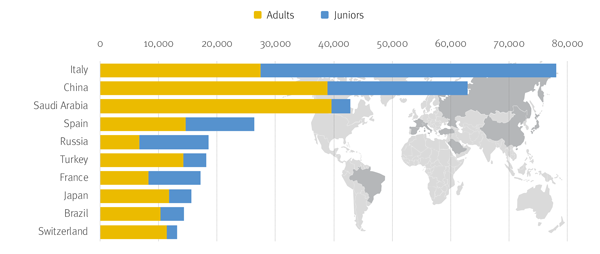 Chart 6: Student weeks by age group and source country (top 10 markets)
Chart 6: Student weeks by age group and source country (top 10 markets)
- Commissionable to non-commissionable ratio, 80%:20%
- Group to individual bookings ratio, 24%:76%.
Student age groups
The majority of bookings over the summer period are from over 18s - adults account for 60% of students. In Q3 2018 64% were taken by adults and 36% juniors.
In Q3 2019 there were:
- 253,239 adult student weeks
- 166,129 junior student weeks
In comparison to Q3 2018, junior student weeks grew in 58 source markets and adult student weeks in 51. While junior student weeks were up by 1.3%, adults recorded a decrease of 0.4%.
(Note: the lower total in the below is because year-on-year comparisons are based on a sample of 132 centres that participated in both QUIC Q3 2018 and QUIC Q3 2019)
|
|
|
|
Chart 1: Student weeks by age group
|
Table 1: percentage change between Q3 2018 and Q3 2019
|
Booking type and source
The third quarter of 2019 recorded the highest percentage of student weeks for which commissions were paid, as is traditional for this period of the year. Four in five student weeks were booked via a commissionable source.
Similarly, the significant proportion of junior student weeks seen this quarter resulted in group bookings recording their largest share of the first three quarters of 2019. In Q3 they represented 40% of all student weeks.
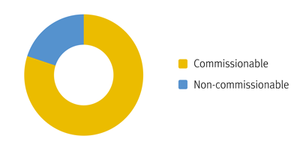 |
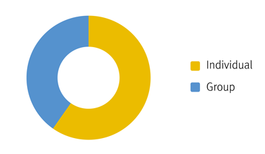 |
Chart 2: Student weeks by booking source
|
Chart 3: Student weeks by booking type types |
Course types
Of all junior weeks, over three quarters (75.7%) were spent on summer camp programmes. While traditionally the most popular course for adult students was General English (78.0%), a notable share was recorded by English for Academic Purposes (17.5%)
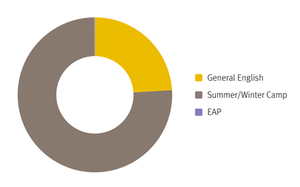 |
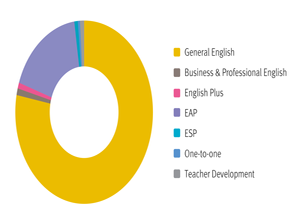 |
| Chart 4: Student weeks by junior course types |
Chart 5: Student weeks by adult course types |
Downloads
What do QUIC participants receive?
A full 40-page report and accompanying Excel format pivot tables, which provide granular intelligence on sector, region and provider type are only available to QUIC participants. Read more about QUIC +
Contact Roz McGill if you are interested in receiving the full quarterly data by joining QUIC 2020.
Notes
- QUIC 2019 provides excellent market intelligence with 152 English UK members, operating in 275 teaching locations, participating. This represents 36% of English UK membership and around 50% of the association's total student weeks.
- Year-on-year quarter three comparisons are based on a sample of 132 centres participating in both QUIC Q3 2018 and QUIC Q3 2019.
- Any students under the age of 18 who are studying on courses for adults should be recorded as 'adult' (the course type overrides the date of birth of the student).
previous entry << >> next entry